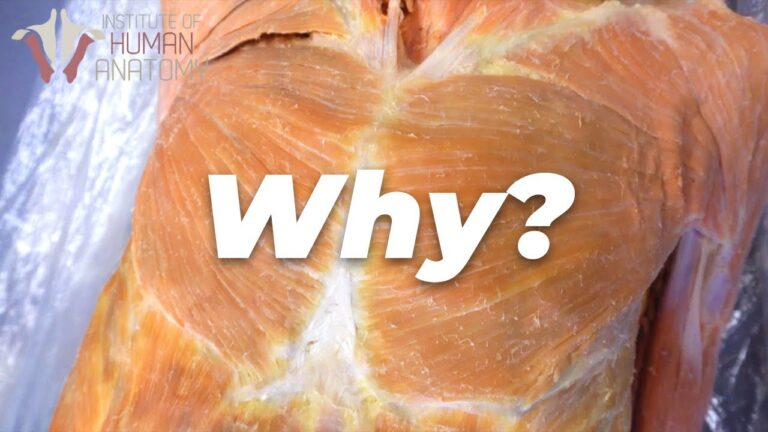Beneath the Sands: The Hidden City Under Giza and the Legends That Echo
Time Interval: 00:00 – 12:01
1a. A City Beneath the Giza Pyramids?
📝 The Point:
• A controversial study claims scans beneath Egypt’s Giza Plateau reveal vertically aligned shafts—suggesting an ancient subterranean city.
• These structures could extend over 2,100 feet deep, resembling columns in two rows.
• If true, this would be one of the most significant archaeological revelations of the modern era.
⚖️ The Law:
• Extraordinary claims require extraordinary evidence.
• Discoveries should be validated by independent sources.
• Skepticism is healthy—but so is curiosity.
🔮 And So:
• This could rewrite ancient history—or be an overinterpretation of natural formations.
• True science demands replication, not hype.
• What lies beneath Giza might challenge everything we know—or confirm our imagination.
What would it mean for modern identity if ancient civilizations were far more advanced than we assumed?
1b. From Giants to Nephilim: The Mythic Builders
📝 The Point:
• Some theorists claim giants, like the biblical Nephilim, built massive structures—drawing from stories like David and Goliath.
• The narrative frames these beings as once-dominant, 20-foot tall humanoids interbreeding with humans.
• Modern myths often blend ancient texts, pseudoscience, and cultural interpretations.
⚖️ The Law:
• Myth reflects mystery, not always truth.
• Religious texts are symbolic, not scientific.
• Extraordinary physiology must align with biological plausibility.
🔮 And So:
• Myths help fill gaps where science hesitates.
• Giant lore often reflects cultural awe rather than historical data.
• The Nephilim serve more as metaphorical bridge-beings than factual ancestors.
Why do we so often reach for myth when mystery remains unresolved?
1c. The Sling vs. the Giant: Power in Simplicity
📝 The Point:
• The tale of David defeating Goliath with a sling isn’t just symbolic—it’s biomechanically feasible.
• High-velocity slings could cause severe injury, even to large opponents.
• Giants, if they existed, would likely suffer from severe mobility issues, making them vulnerable.
⚖️ The Law:
• Size isn’t always strength—efficiency matters.
• Physics favors precision over brute force.
• Legends can be grounded in logic.
🔮 And So:
• Ancient heroes might have been skilled, not superhuman.
• The sling was a democratizing weapon—accessible yet deadly.
• Sometimes, simplicity wins wars.
What strengths are we ignoring because they don’t come in intimidating packages?
1d. Alien Hypotheses and Cultural Bias
📝 The Point:
• Claims that aliens built pyramids often dismiss indigenous genius—implying ancient non-European societies couldn’t innovate.
• These theories lack tangible proof but captivate minds with the allure of the unknown.
• Skepticism toward non-Western history often masks subtle prejudice.
⚖️ The Law:
• Every society deserves credit for its own genius.
• The lack of proof isn’t proof of something else.
• Bias often hides beneath fascination.
🔮 And So:
• Dismissing ancient engineering as “alien” is lazy thinking.
• Recognizing human ingenuity expands historical respect.
• The mystery lies not in capability, but in preservation.
Do we reach for aliens because we’re unwilling to believe our ancestors were just that clever?
1e. The Limits of Modern Knowledge
📝 The Point:
• Today’s specialists often lack basic survival knowledge—most don’t know where their water comes from.
• Ancient humans may have known less, but understood more about living.
• We’ve traded depth for convenience and comprehension for accessibility.
⚖️ The Law:
• Modernity isn’t mastery.
• Knowing about is not knowing how.
• Simplicity breeds resilience.
🔮 And So:
• In a collapse, modern society might fail fast.
• Ancient knowledge, though basic, was deeply practical.
• We’ve lost our connection to elemental wisdom.
Have we become so advanced that we’re now dangerously fragile?
1f. Collapse and Catastrophe: The Forgotten Fragility
📌 Electromagnetic Collapse Theory
📝 The Point:
• A theoretical magnetic pole shift could erase our infrastructure, destroy electronics, and threaten survival.
• Without basic survival knowledge, most would perish quickly.
• Water access, not Wi-Fi, becomes the currency of life.
⚖️ The Law:
• The higher the tower, the harder the fall.
• True security requires redundancy.
• Survival depends on reconnection with essentials.
🔮 And So:
• Preparedness is not paranoia—it’s self-respect.
• Comfort has dulled critical instincts.
• Collapse isn’t if—it’s when.
What would remain of our greatness if the grid went dark tomorrow?
1g. The Illusion of Knowing: When Google Isn’t Understanding
📝 The Point:
• Modern tools like phones or ChatGPT give answers, but not understanding.
• We’ve mistaken access for wisdom—googling something doesn’t mean we comprehend it.
• Society expects instant knowledge, but lacks depth and context.
⚖️ The Law:
• Information ≠ Intelligence.
• Tools are extensions, not replacements, of thought.
• Learning happens through engagement, not scrolling.
🔮 And So:
• We’re info-rich but wisdom-poor.
• Convenience has atrophied our intellectual muscles.
• True insight comes from wrestling with ideas, not just reading them.
Are we outsourcing our minds one search at a time?
1h. Sci-Fi Reality: Secret Tech Under the Pyramids?
📝 The Point:
• Wild theories imagine advanced subterranean bases beneath Giza—computers, technology, even neural links.
• Copper wiring, electromagnetic evidence, and ancient batteries are cited as clues.
• While largely speculative, it exposes the human hunger for hidden truths.
⚖️ The Law:
• Curiosity fuels progress—even if it begins in fantasy.
• Speculation isn’t science—but it can inspire it.
• Sometimes fiction lights the path to fact.
🔮 And So:
• We crave mystery because it makes reality more magical.
• Hidden knowledge isn’t about secrecy—it’s about potential.
• Even debunked theories spark critical inquiry.
What ancient truths might we one day realize were stranger than fiction?
1i. Ancient Electricity? A Forgotten Science?
📝 The Point:
• Some believe ancients had access to rudimentary electricity—citing battery jars and electroplating techniques.
• Tesla’s dream of wireless energy is often retrofitted into ancient myths.
• The line between lost tech and imaginative projection blurs.
⚖️ The Law:
• Absence of evidence is not evidence of absence.
• Ancient artifacts may have multiple interpretations.
• Technological parallels require more than poetic symmetry.
🔮 And So:
• History might contain more innovation than we credit.
• We shouldn’t dismiss ancient intelligence due to modern bias.
• But critical inquiry must temper wild romanticism.
What if we already had the keys to sustainable energy—and buried them under centuries of doubt?
1j. Intelligence of the Ancients
📝 The Point:
• Our ancestors might not have known more, but they may have been more mentally integrated.
• They lived systems-based lives—building, farming, healing—where knowledge was applied, not just theorized.
• The idea that we are “smarter” is a hubris of convenience.
⚖️ The Law:
• Modern isn’t superior—just different.
• Knowledge applied > Knowledge memorized.
• Context matters—intelligence adapts to circumstance.
🔮 And So:
• We may have more tools, but they had more survival wisdom.
• Progress must integrate ancient awareness, not just transcend it.
• True evolution is synthesis, not discard.
Are we evolving—or simply forgetting where we came from?
1k. Civilization at the Edge: Comfort, Fragility, and Rediscovery
📝 The Point:
• A society that doesn’t know where its water comes from is always a step from collapse.
• Without power, water, and internet—how many could survive 72 hours?
• Our comfort has created cognitive dissonance—we think we’re self-sufficient, but we’re deeply dependent.
⚖️ The Law:
• Comfort breeds complacency.
• Resilience is preparation, not paranoia.
• Dependency is a silent vulnerability.
🔮 And So:
• Relearning basics may become the new intelligence.
• Collapse isn’t just a scenario—it’s a test of humility.
• The future may belong to those who remember the past.
What happens when the system that feeds us forgets how to feed itself?
Glossary
• Nephilim: Mythical giants from the Book of Enoch, said to be ancient hybrids of divine beings and humans.
• Subterranean shafts: Vertical structures theorized to exist under the Giza Plateau, possibly man-made.
• Electroplating jars: Artifacts some interpret as ancient batteries, possibly used to create small electrical charges.
• Pole shift: A theoretical reversal of Earth’s magnetic poles, which could weaken Earth’s magnetosphere.
• Technological amnesia: The idea that modern humans know how to use tools but not how to recreate them.







